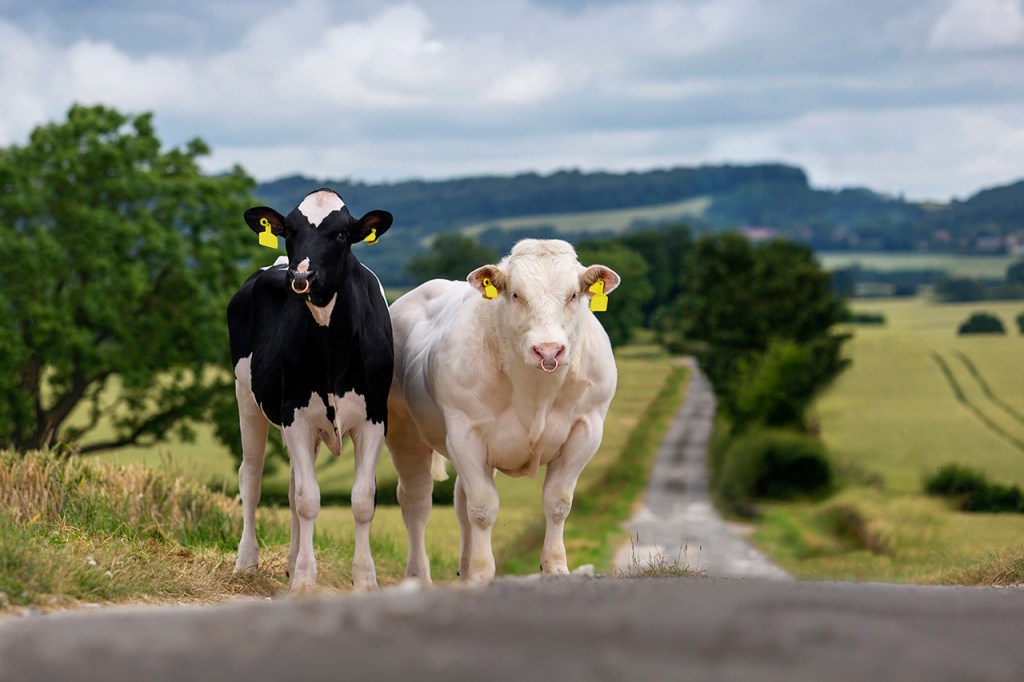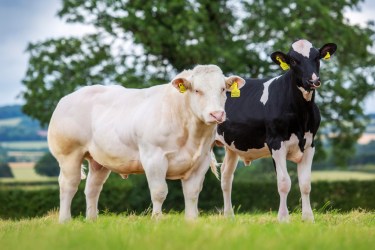When hearing about a ‘13th Milk Cheque’ you may think this is about increasing production on the dairy, however, our definition of the term is the added income generated from the beef calves born and sold from the dairy. Farmers around the world are learning more about beef on dairy and how breeding to beef could work in their businesses. The interest of beef on dairy stems a lot from the increased usage of sexed dairy semen which enables dairies to produce dairy heifers more efficiently and therefore reducing the number of dairy bull calves born.
There are three questions to ask before dairy farmers should adopt a sexed and beef strategy with their breeding decisions. Those are: How much sexed and beef should I be using in my herd? What beef genetics should I use? And, do I have a market for my beef calves?
A key in this sexed and beef strategy is having a plan! Replacement dairy heifer rearing is the second largest variable cost on a dairy farm, according to AHDB in the UK, this can be as much as £1,819 per heifer. With this large cost, its important not to rear too many, but also not to have a large deficit which would lead to the need to purchase heifers externally. To assist with this plan, we created a simple calculator which dairy producers can use to see what percentage of sexed dairy genetics are needed to produce the desired amount of female replacements. When this has been calculated, producers can see how much beef they can use on the lower genetic females. Genus ABS also have a tool called Heifer Optimiser which Breeding Advisors can use to help further in this plan.
Would like to see how a beef on dairy plan can impact your financial outcome?
Download now our Beef on Dairy Calculator.
The other two questions relate well to each other. Depending on the country, beef on dairy calves are in high demand, for example in the UK, there are lots of routes for calves to be sold into including privately, through a livestock market or into large supply chains. The breed of choice will depend on the local buyers and this is a conversation to have with buyers to ensure the calves will be as valuable as possible.
Irrelevant of the beef breed, the most important traits for a dairy farmer are:
- Creating a pregnancy.
- Short gestation period.
- Eases of calving.
- Quality calf to sell.
- Cow back up and in the parlour with reduced interference.
Genus ABS test all their beef sires on dairy cows in the UK and Italy so data can be collected on the traits most important to dairies, over the past 40 years of this data collection, hundreds of bulls have been tested across six main beef breeds. These traits are given an economical value and are combined to create BeefAdvantage. This index is specifically created for the dairy farmer and is a way to rank beef sires on how suitable they are for use on dairy.
The importance of data on dairy cows is huge as the results can be quite different to the Estimated Breeding Values (EBV’s). For example, a sire can be very easy calving according to EBV information which is based on pure breeding data, and when used on dairy cows calving ease may not be as favourable due to the dam breed changing.






